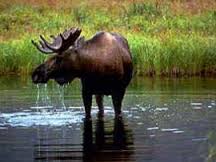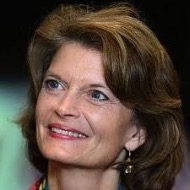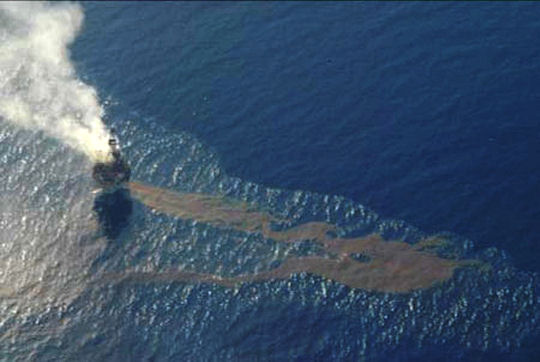|
|
|
|
|
|
|
|
No Arctic-science events are scheduled for today.
|
Media
Wildlife, Wilderness and War on Plastic: The Life of an Arctic Expedition Leader. Helga Bårdsdatter has found the perfect job − if not the one she had in mind. "I dreamed of becoming a vet," she told me during my expedition cruise in Norway on Hurtigruten's MS Fram. "I went to an agricultural high school where I learned to drive a tractor and use a chainsaw." There's not much call for driving tractors with a cruise line, but working in an expedition team ticks all the boxes for those who are passionate about nature. After school, Bårdsdatter studied biology in Oslo, which entailed a three-week field course in Svalbard. The Telegraph
Arctic Meteorology Stations Receive New Satellite Communication Equipment. New systems of satellite communication VSAT (Very Small Aperture Terminal) will be installed in summer at Arctic meteorology stations: on the Vaigach Island and the Kolguyev Island in the Barents Sea and on Novaya Zemlya, head of the local meteorology and environment service Roman Yershov told TASS on Friday. TASS
 Respiratory Germ Found in Moose, Caribou. Respiratory Germ Found in Moose, Caribou. A respiratory pathogen once thought to only affect sheep and goats has been found in Alaska caribou and moose. The bacterium, called mycoplasma ovipneumoniae, or "Movi," has also been implicated in the death of an emaciated caribou from the Fortymile herd last month. Co-authors of the related study, Drs. Kimberlee Beckman and Margaret Highland, presented the findings June 15 at the Idaho Veterinary Medical Association's summer meeting. The Arctic Sounder
Appalachian Professor Dr. Steve Hageman Receives Fulbright to Study Global Warming's Effects in the Polar Arctic. Dr. Steve Hageman, professor of geology in the Department of Geological and Environmental Sciences, which is housed in Appalachian State University's College of Arts and Sciences, has been awarded a 2018-19 Fulbright Scholar Program award to study the effects of global warming on marine polar Arctic organisms through the Institute of Oceanology of the Polish Academy of Sciences. "I am honored and grateful to be the recipient of a Fulbright Fellowship this year. Appalachian Today US Coast Guard Turns to Canada for Help With Designing its New Heavy Icebreaker. With growing concerns over its apparent "icebreaker gap" with Russia and an urgent need to replace its only operational heavy icebreaker the United States Coast Guard has turned to Canada for help in designing the future generation of its polar-class heavy icebreakers. The U.S. Coast Guard is collaborating with the National Research Council of Canada (NRC) to access its renowned ice tank facilities in St. John's, Newfoundland, to model and evaluate the specifications needed to design the new heavy icebreakers. Radio Canada International  Murkowski Introduces Alaska-Specific Farm Bill. Murkowski Introduces Alaska-Specific Farm Bill. Alaska Republican Sen. Lisa Murkowski has introduced an Arctic specific farming bill to address issues of food security, conservation and trade in Alaska. The Food Security, Housing and Sanitation Improvements in Rural, Remote and Frontier Areas Act of 2018 includes a series of Alaska and Arctic-specific initiatives compiled based on the input of farmers and stakeholders across Alaska, Murkowski said. This bill is meant to accompany the nation's farm bill, which is updated every five years, the senator said, covering everything from agriculture to water projects. Fairbanks Daily News-Miner
|
|
Future Events
5th European Conference on Permafrost, June 23-July 1, 2018 (Chamonix-Mont Blanc, France). In the continuation of the International and Regional conferences convened by the International Permafrost Association, the 5th European Conference on Permafrost (EUCOP 2018) will be held in Chamonix-Mont Blanc, France, 23rd June - 1st July 2018. The conference aims at covering all relevant aspects of permafrost research, engineering and outreach on a global and regional level. Conference website: here.
Arctic Observing Summit 2018, June 24-26, 2018 (Davos, Switzerland). The Arctic Observing Summit (AOS) is a high-level biennial summit that provides a platform to address urgent and broadly recognized needs of Arctic observing across all components of the Arctic system. AOS 2018 will be held in Davos, Switzerland ( June 24-26) and will focus on pressing issues in the implementation and support of sustained observations that can be addressed through a business-case lens. To that end, short submissions are requested that address any and all aspects of the overarching theme and sub-themes. Additional information can be found here.
 Coastal Response Research Center Requests Input on the State of Science on Dispersant Use in the Arctic. The Coastal Response Research Center (CRRC) recently collected statements and reports on five topic areas related to dispersant use in the Arctic: efficacy and effectiveness; physical transport and chemical behavior; degradation and fate; eco-toxicity and sublethal impacts; and, public health and food safety. CRRC request written input on the statements the scientists made on the state-of-the-science regarding dispersant use, particularly as it applies to Arctic waters. Written comments are requested by July 13th. More information on this initiative is available here. Coastal Response Research Center Requests Input on the State of Science on Dispersant Use in the Arctic. The Coastal Response Research Center (CRRC) recently collected statements and reports on five topic areas related to dispersant use in the Arctic: efficacy and effectiveness; physical transport and chemical behavior; degradation and fate; eco-toxicity and sublethal impacts; and, public health and food safety. CRRC request written input on the statements the scientists made on the state-of-the-science regarding dispersant use, particularly as it applies to Arctic waters. Written comments are requested by July 13th. More information on this initiative is available here.
17th International Congress of Circumpolar Health (ICCH17), August 12-15, 2018 (Copenhagen, Denmark). The ICCH congresses are held every third year in different locations in the circumpolar area and represent the largest scientific meetings worldwide on circumpolar health. The ICCH congresses serve as the primary source of information exchange and scholarly communication in issues relating to circumpolar health. More than 750 participants generally register and participate in each Congress, and more than 400 scientific papers or posters are usually presented.
UArctic Congress 2018, September 3-7, 2018 (Oulu and Helsinki, Finland). The UArctic Congress 2018 will bring together key UArctic meetings and a science conference into one single gathering, including business meetings of the Council of UArctic, Rectors' Forum, Student Forum, and Thematic Networks & UArctic Institutes Leadership Team. The Congress is an integral part of the Finland's Arctic Council chairmanship program, and open to the public. The event will highlight the themes and priorities of the Finnish chairmanship, including the goals of the United Nations' 2030 Agenda for Sustainable Development, and the Paris Agreement under the UN Framework Convention on Climate Change.
Scientific Exploration of the Arctic and North Pacific (SEA-NorP), September 25-27, 2018 (Mt. Hood, Oregon USA). This workshop will include discussion of hypotheses that can be tested by scientific drilling in the region, the technology necessary to achieve those goals, ideal sites for drilling based on existing data, and where additional site survey data is needed. The goal of the workshop organizers is that multiple proposals will be initiated at the workshop, both for full cruise legs and for shorter, targeted expeditions around the following themes: ocean gateways, geohazards, volatile cycling, ice histories at transition zones, biosphere and climate.
The second Arctic Biodiversity Congress is hosted by the Conservation of Arctic Flora and Fauna (CAFF), the biodiversity working group of the Arctic Council, and the Ministry of the Environment, Finland. The second Arctic Biodiversity Congress will build on the success of the first Congress, held in 2014 in Trondheim, Norway, and will bring together scientists, policymakers government officials, Indigenous representatives, Traditional Knowledge holders, industry, non-governmental organizations, and others to promote the conservation and sustainable use of Arctic biodiversity.
|
|

  
4350 N. Fairfax Drive, Suite 510
Arlington, VA 22203, USA
External links in this publication, and on the USARC's World Wide Web site ( www.arctic.gov) do not constitute endorsement by the US Arctic Research Commission of external Web sites or the information, products or services contained therein. For other than authorized activities, the USARC does not exercise any editorial control over the information you may find at these locations. These links are provided consistent with the stated purpose of this newsletter and the USARC Web site.
|
|
|
|
|
|
|
|
|
 Respiratory Germ Found in Moose, Caribou. A respiratory pathogen once thought to only affect sheep and goats has been found in Alaska caribou and moose. The bacterium, called mycoplasma ovipneumoniae, or "Movi," has also been implicated in the death of an emaciated caribou from the Fortymile herd last month. Co-authors of the related study, Drs. Kimberlee Beckman and Margaret Highland, presented the findings June 15 at the Idaho Veterinary Medical Association's summer meeting. The Arctic Sounder
Respiratory Germ Found in Moose, Caribou. A respiratory pathogen once thought to only affect sheep and goats has been found in Alaska caribou and moose. The bacterium, called mycoplasma ovipneumoniae, or "Movi," has also been implicated in the death of an emaciated caribou from the Fortymile herd last month. Co-authors of the related study, Drs. Kimberlee Beckman and Margaret Highland, presented the findings June 15 at the Idaho Veterinary Medical Association's summer meeting. The Arctic Sounder Murkowski Introduces Alaska-Specific Farm Bill. Alaska Republican Sen. Lisa Murkowski has introduced an Arctic specific farming bill to address issues of food security, conservation and trade in Alaska. The Food Security, Housing and Sanitation Improvements in Rural, Remote and Frontier Areas Act of 2018 includes a series of Alaska and Arctic-specific initiatives compiled based on the input of farmers and stakeholders across Alaska, Murkowski said. This bill is meant to accompany the nation's farm bill, which is updated every five years, the senator said, covering everything from agriculture to water projects. Fairbanks Daily News-Miner
Murkowski Introduces Alaska-Specific Farm Bill. Alaska Republican Sen. Lisa Murkowski has introduced an Arctic specific farming bill to address issues of food security, conservation and trade in Alaska. The Food Security, Housing and Sanitation Improvements in Rural, Remote and Frontier Areas Act of 2018 includes a series of Alaska and Arctic-specific initiatives compiled based on the input of farmers and stakeholders across Alaska, Murkowski said. This bill is meant to accompany the nation's farm bill, which is updated every five years, the senator said, covering everything from agriculture to water projects. Fairbanks Daily News-Miner 

